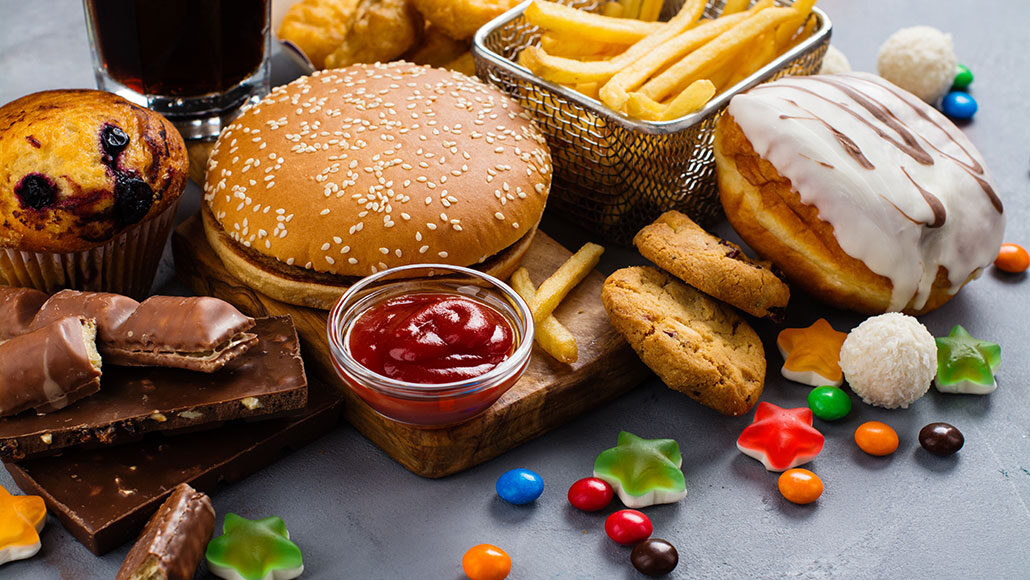How Junk Food Affects Your Body and Mind
Junk food is everywhere — from fast-food burgers to colorful snack packages on every supermarket shelf. While it’s tempting, tasty, and often convenient, junk food comes with a cost. The effects of regularly consuming processed, sugary, and greasy food go far beyond just weight gain.
In this blog, we’ll explore how junk food affects both your body and mind, and why moderation is key for a healthy lifestyle.

What Is Junk Food?
Junk food refers to heavily processed foods that are high in calories but low in nutrients. These typically include:
Fast food (burgers, fries, fried chicken)
Sugary drinks (sodas, energy drinks)
Processed snacks (chips, candy, cookies)
Instant meals (ramen, frozen pizza)
While an occasional indulgence is fine, frequent consumption can negatively impact your health in several ways.
How Junk Food Affects Your Body
1. Weight Gain and Obesity
Junk food is high in calories, fats, and sugars, but low in fiber and protein. This combination can lead to overeating and weight gain, increasing the risk of obesity, especially when combined with a sedentary lifestyle.
2. Heart Health Risks
Foods high in trans fats and sodium can raise your blood pressure and cholesterol levels, contributing to heart disease, stroke, and high blood pressure.
3. Poor Digestion
Most junk food lacks dietary fiber, which is essential for digestion. This can lead to constipation, bloating, and sluggish metabolism.
4. Increased Risk of Diabetes
Sugary snacks and sodas cause rapid spikes in blood sugar levels. Over time, this puts stress on your insulin response, raising the risk of type 2 diabetes.
5. Weakened Immune System
A diet high in processed food can reduce your body’s ability to fight off infections. Your immune system thrives on nutrients like vitamins A, C, and E, which are often missing in junk food.
How Junk Food Affects Your Mind
1. Mood Swings and Anxiety
Junk food may give you a temporary “sugar high,” but it’s quickly followed by a crash. These blood sugar fluctuations can cause irritability, anxiety, and mood swings.
2. Decreased Cognitive Function
Studies have shown that a poor diet can impair memory, focus, and learning. Junk food affects brain function by reducing the production of brain-derived neurotrophic factor (BDNF), a chemical vital for memory and learning.
3. Sleep Disturbances
Eating greasy or spicy junk food late at night can lead to poor sleep quality, indigestion, and restlessness. Lack of sleep then impacts mental clarity and emotional health.
4. Increased Risk of Depression
A diet low in omega-3 fatty acids, antioxidants, and fiber — and high in sugar and fats — has been linked to a higher risk of depression and stress. Your gut and brain are connected, and poor nutrition can disrupt this balance.
Why Is Junk Food So Addictive?
Junk food is engineered to trigger the reward centers in your brain, releasing dopamine — the “feel-good” chemical. Over time, this can lead to a cycle of cravings and emotional eating, much like addiction.

Tips to Reduce Junk Food Consumption
Meal Prep: Plan healthy meals ahead of time to avoid grabbing fast food.
Hydrate: Sometimes cravings are caused by dehydration.
Healthy Alternatives: Replace chips with nuts, soda with infused water, and sweets with fruits.
Mindful Eating: Pay attention to hunger cues and avoid eating out of boredom.
Limit Access: Don’t keep junk food in the house if you’re trying to cut back.
Final Thoughts
Junk food may be convenient and tasty, but the long-term effects on your body and mind can be serious. From weight gain and heart issues to mood swings and memory problems, the impact is wide-reaching.
The key isn’t necessarily to eliminate all indulgences, but to practice balance and moderation. Making small, healthier choices every day can lead to big changes in your physical and mental well-being.

